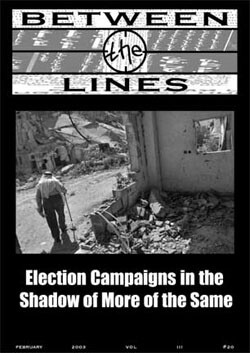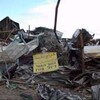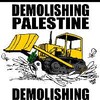
They can't distinguish the forest from the trees
22 January 2003
Why did a dyed-in-the-wool military man and leader of the “Labor” Party, Amram Mitzna awaken such strong expectations among veteran Israeli Peaceniks? Why is the Iraq war almost a non-issue for the majority of Israeli peace activists? It is known that the Israeli government might use the Iraq war in order to expel as many Palestinians as possible. Isn’t that reason enough to give the subject a much higher priority on the political agenda of Israeli peace movements? Israeli peace activist and journalist Shraga Elam answers the questions in this feature from Between The Lines. Read more about They can't distinguish the forest from the trees



